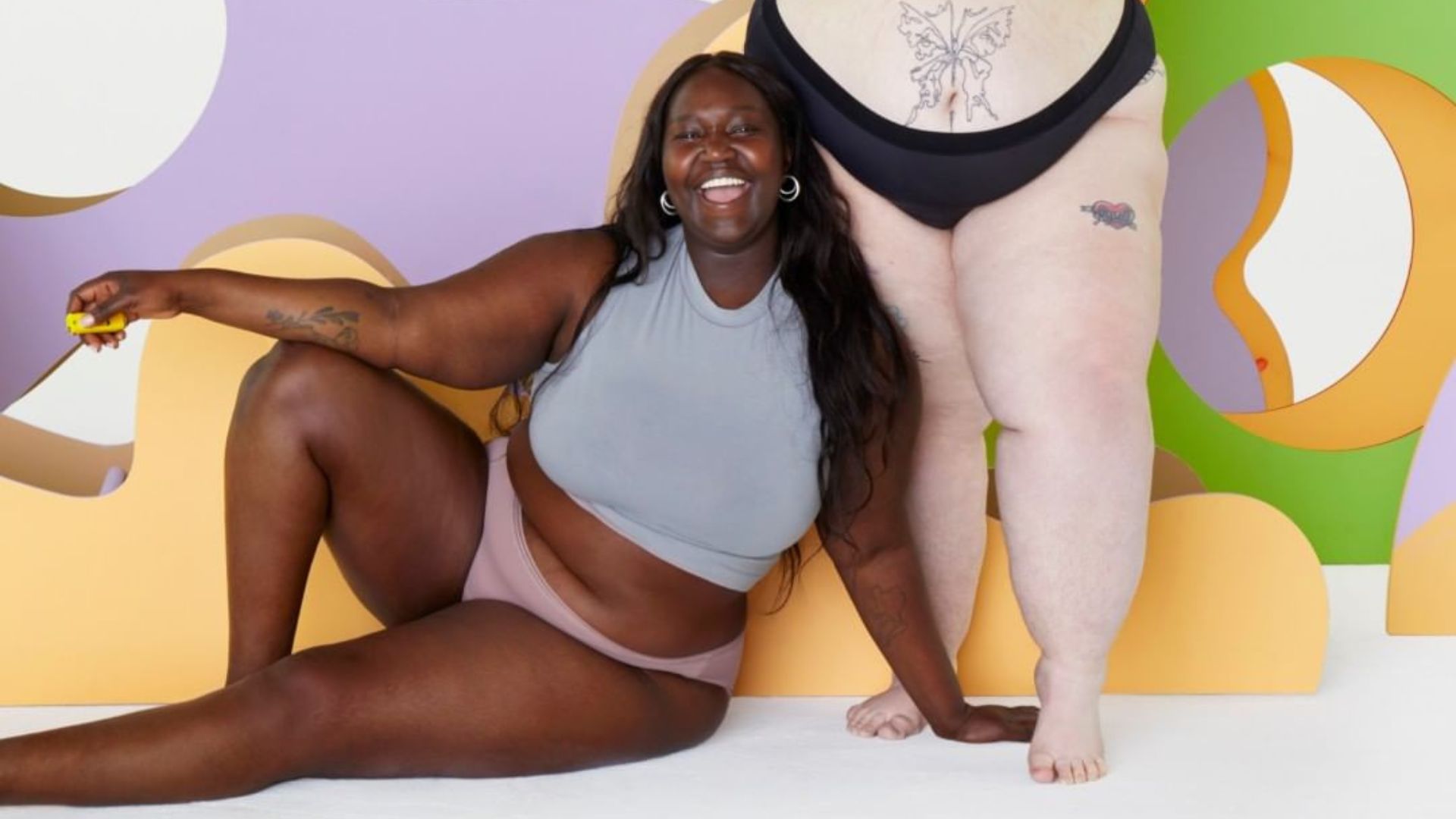Do you really know what’s in your clothes, especially if you’re wearing period panties? In the face of toxic shock scare, fear marketing is in full swing, even in the hygienic protection department. Founded in 2011 by Miki Agrawal, Radha Agrawal and Antonia Dunbar, the New York brand Thinx Underwear was based in particular on promise not to contain any “ toxic ingredient “. A vague argument and expression, used by many brands, which helps to maintain generalized (legitimate) consumer anxiety by giving the impression that everything else in the market wants to kill you. However, a recent study has just shown that Thinx Underwear did indeed contain controversial compounds. The company then found itself in « Class action lawsuit » : A class action lawsuit brought by a large number of people, often consumers, to sue a person, often a business, for financial compensation. At the end of this process, Subtle it now owes the sum of four million dollars in compensation to deceived customers.
Vintage panty brand Thinx has been found guilty of containing harmful substances
Indeed, a consumer association filed a class action lawsuit against the Thinx brand to conduct a study on the reality of the composition of its products. The investigation opened on August 26, 2020 (as can be read on ClassAction.org) has just concluded that these menstrual products do indeed contain harmful toxins, including per- and polyfluoroalkyl substances (PFAS). However, these may be linked to adverse health effects such as the development of cancer (in the event of prolonged exposure to a high concentration), estimates the United States Environmental Protection Agency. The Thinx menstrual protectors would also contain an Agion antimicrobial treatment, which can also have harmful effects on health (always, in the event of prolonged exposure to high concentrations, because it is the dose that makes the poison).
The class action alleges that Thinx knowingly presented its products as safe and “ free of toxic metals and/or nanoparticles However, the brand denies its allegations and claims that PFAS (also dubbed ” eternal chemicals ”) were not part of their product design. However, he agreed to pay the clients a total of $4 million following a recently concluded lawsuit. So anyone who bought menstrual underwear from this brand between November 12, 2016 and November 28, 2022 can claim some of that money. In the event of a valid claim, one can receive seven dollars per purchase for up to three purchases… In practice, one can be reimbursed up to a maximum of twenty one dollars, if one has been exposed to its harmful substances including the brand however, he assured that he was private.
See this post on Instagram
Perennial crisis of confidence in menstrual products
But Thinx is the only menstrual protection brand to claim to be free of controversial compounds. Independent studies have already found high levels of chemicals suspected of such use, such as phthalates (which can have a hormone-disrupting effect), in competitive-side pads and tampons, reports Teen Vogue.
This new process therefore raises the question of the composition of menstrual protection, which is regularly the subject of controversy. This crisis of confidence, which persists and is reconfigured with each new scandal, affects nearly 1.8 billion menstruating people worldwide. But why is it so complicated to produce effective, healthy and safe solutions?
A perfect storm in our panties
the Keeper she just posed the question to Chris Bobel, a professor of gender and sexuality studies at the University of Massachusetts at Boston, which she believes comes from menstruation:
“Our socialized priority is to hide our menstrual bodies, not question the types of products we use. Really a perfect setup for the industry to take advantage of us and exploit our desperation to pass as non-menstruating. »
In other words, we are so used to wanting to hide our periods at all costs, that we accept without batting an eyelid to use products of which we know little about the composition and functioning. The more insecure a market is, the more it may be willing to spend on any avenue that appears to be a solution. (our insecurities are what the fashion and beauty markets are largely based on). Of course, this has a lot to do with the fact that this industry primarily targets women in a still globally sexist world, who therefore care little about their health. Add to that the traceability issues of raw materials like cotton, whose production in organic farming may be questioned, and you get a perfect storm in our panties.
Front page photo credit: Screenshot by Instagram Thinx.
Help us build the future of Madmoizelle by answering this survey!
More articles about
Rules
-
Abortion, menstrual leave… Spain adopts pioneering law for women’s rights
-
Spain is about to adopt menstrual leave: the first in Europe!
-
At 37 I had my uterus removed and it was the best decision
-
The mandatory white at Wimbledon is over, and that’s good for the players
-
Endometriosis: Survey points to alternative medicine scams
-
It’s confirmed, Covid-19 vaccines can have undesirable effects on menstruation
-
Alcohol makes endometriosis worse, according to one study
Source: Madmoizelle
Mary Crossley is an author at “The Fashion Vibes”. She is a seasoned journalist who is dedicated to delivering the latest news to her readers. With a keen sense of what’s important, Mary covers a wide range of topics, from politics to lifestyle and everything in between.





